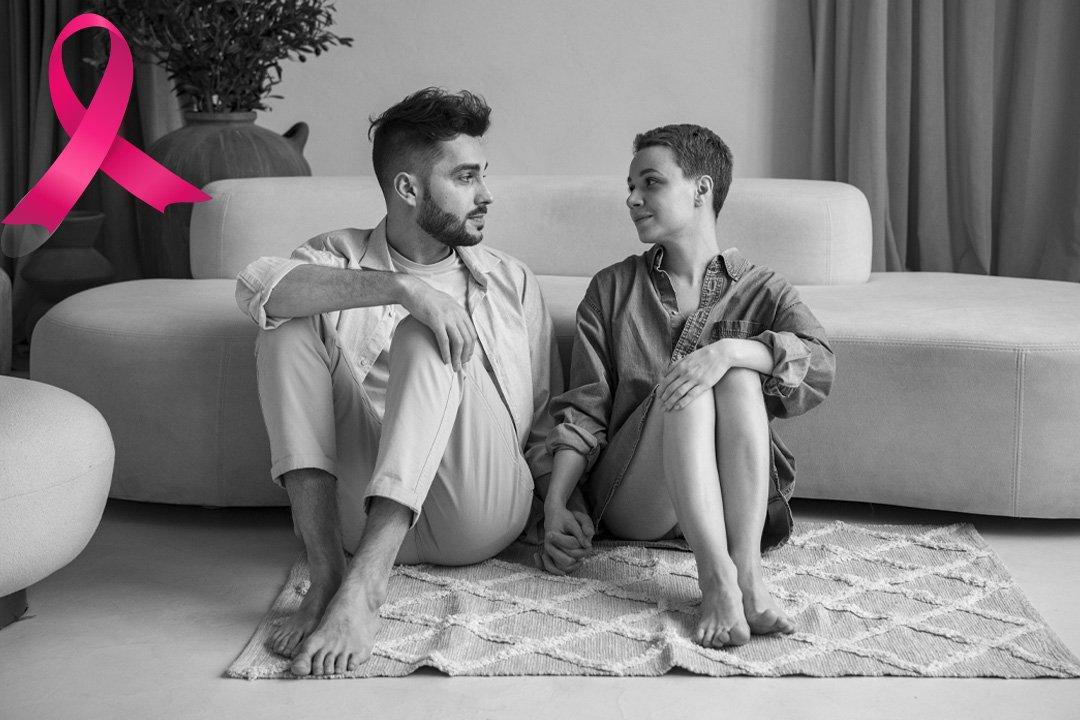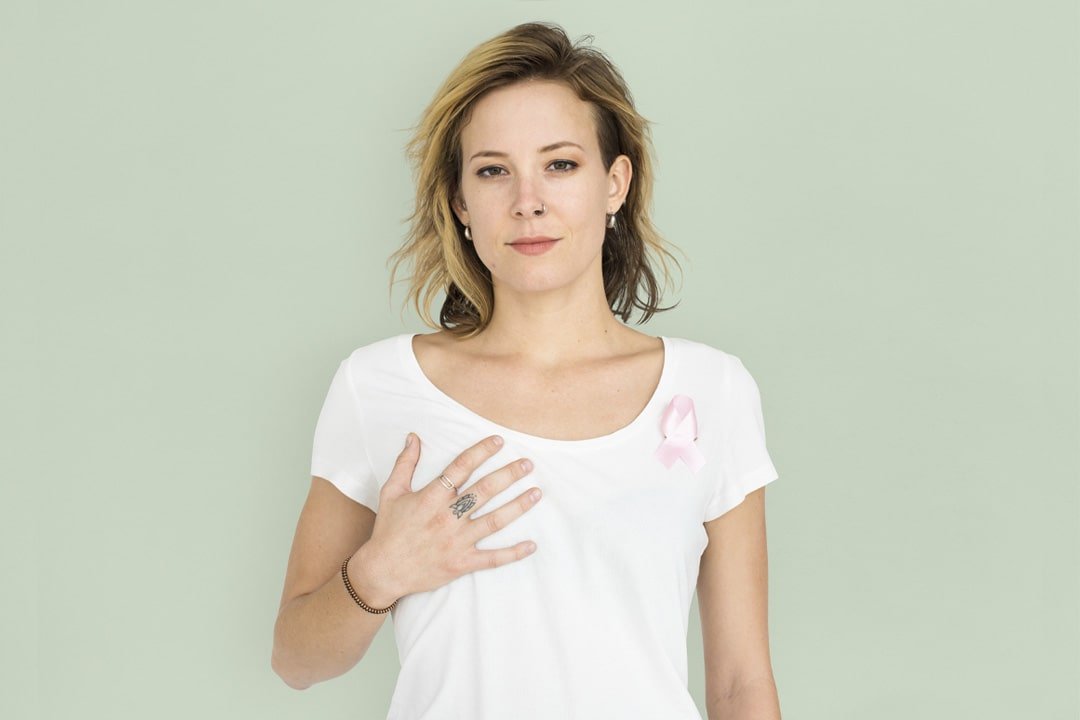TL;DR: Clitoral anatomy made simple: the clitoris is mostly internal and Y-shaped, with a small external glans under the hood.
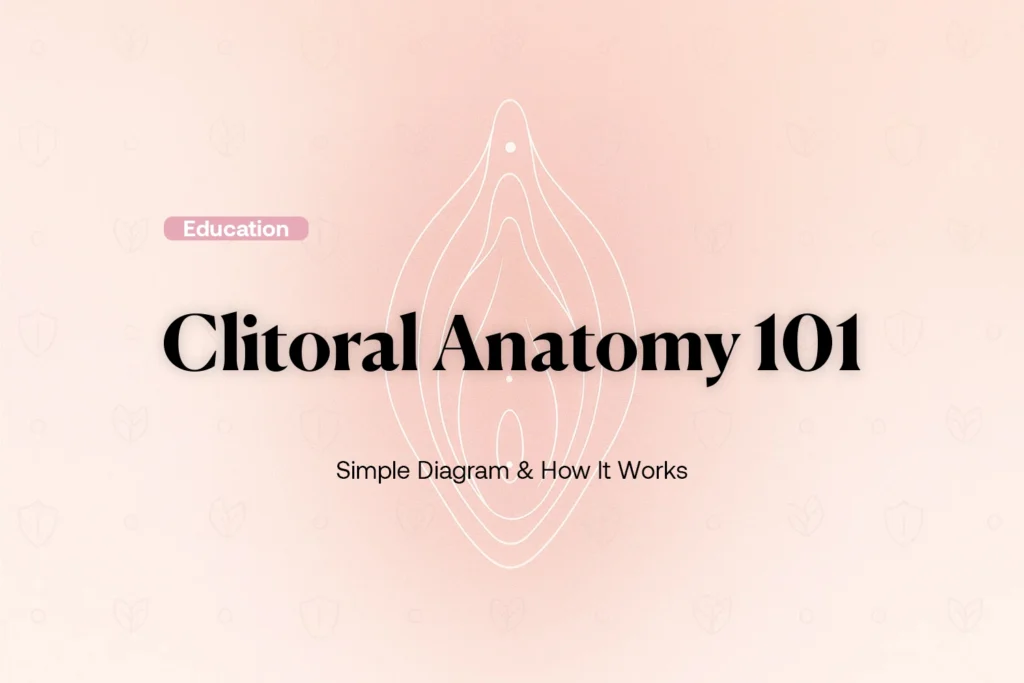
Clitoral Anatomy: What It Is (in One Minute)
- Purpose: Pleasure and arousal
- Tissue: Erectile (fills with blood like any erectile tissue)
- Sensitivity: Very nerve-dense; sensitivity levels vary normally
- Location: At the top of the vulva under a fold of skin called the clitoral hood
Clitoral Anatomy Parts (Plain Language)
Think of the clitoris as an upside-down Y:
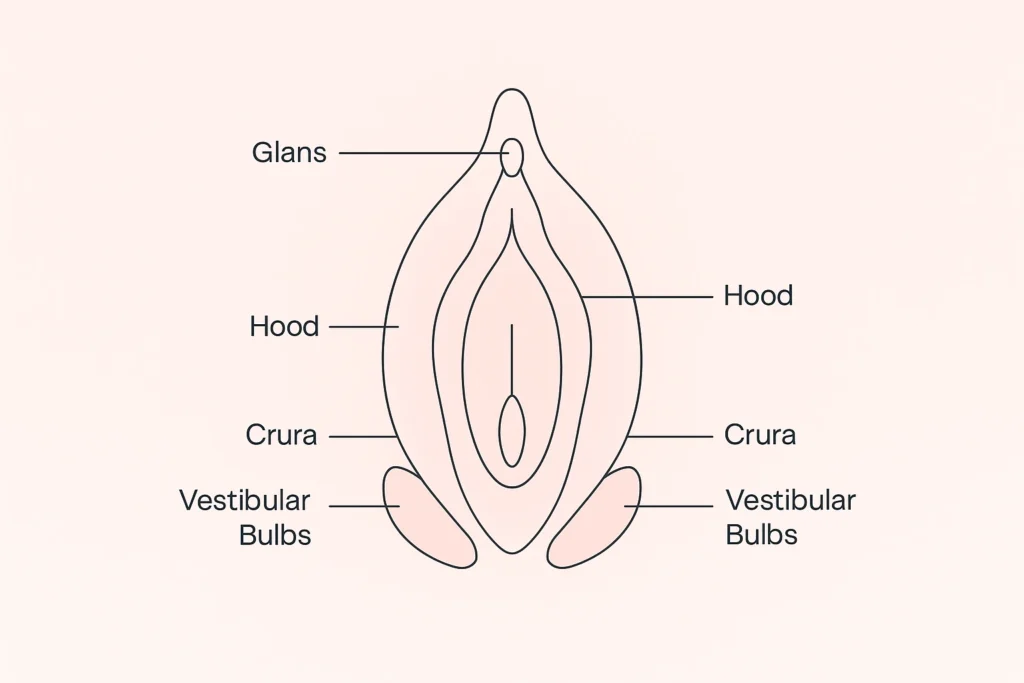
- Glans: The small, visible tip under the hood (most sensitive external spot)
- Hood: Protective fold that may cover the glans partly or fully
- Shaft (body): Just beneath the skin above the glans
- Crura (“legs”): Two internal arms that run along the pubic bones
- Vestibular bulbs: Two pads of erectile tissue on each side of the vaginal opening that swell during arousal
Together, these make the internal clitoris—much bigger than what you can see.
Where It Is (Quick Map of Clitoral Anatomy)
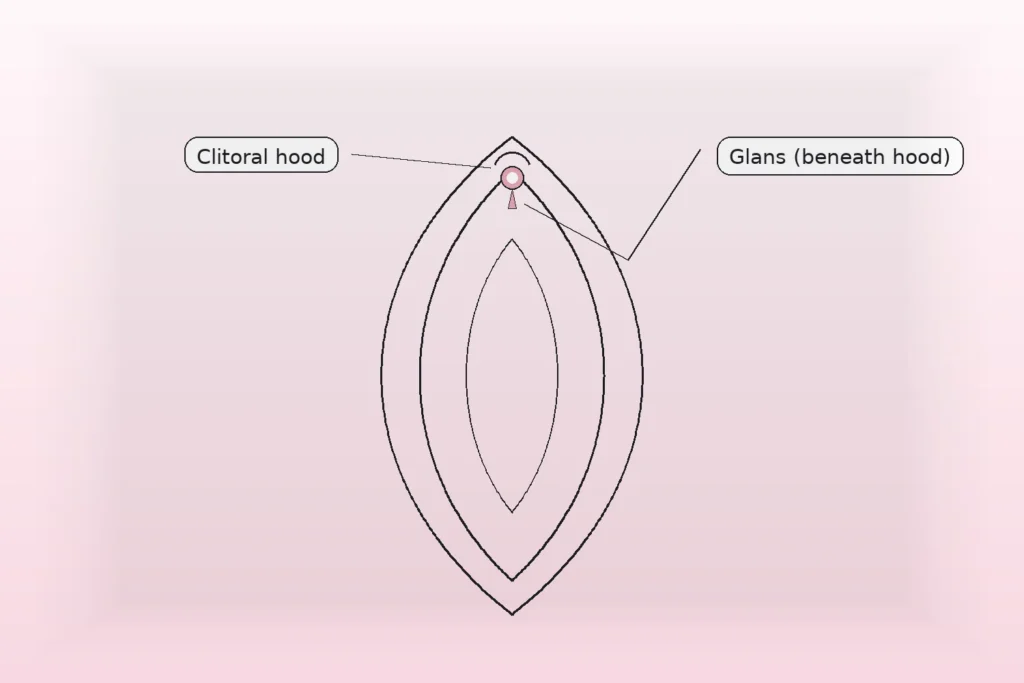
- Find the meeting point of the inner lips (labia minora).
- The small fold at the top is the hood.
- Gently lift/slide the hood—underneath is the glans.
- The rest (shaft, crura, bulbs) is inside, wrapping around the entrance.
Tip: Use a hand mirror, good lighting, and a drop of water-based lube.
How Clitoral Anatomy Works (Arousal & Orgasm)
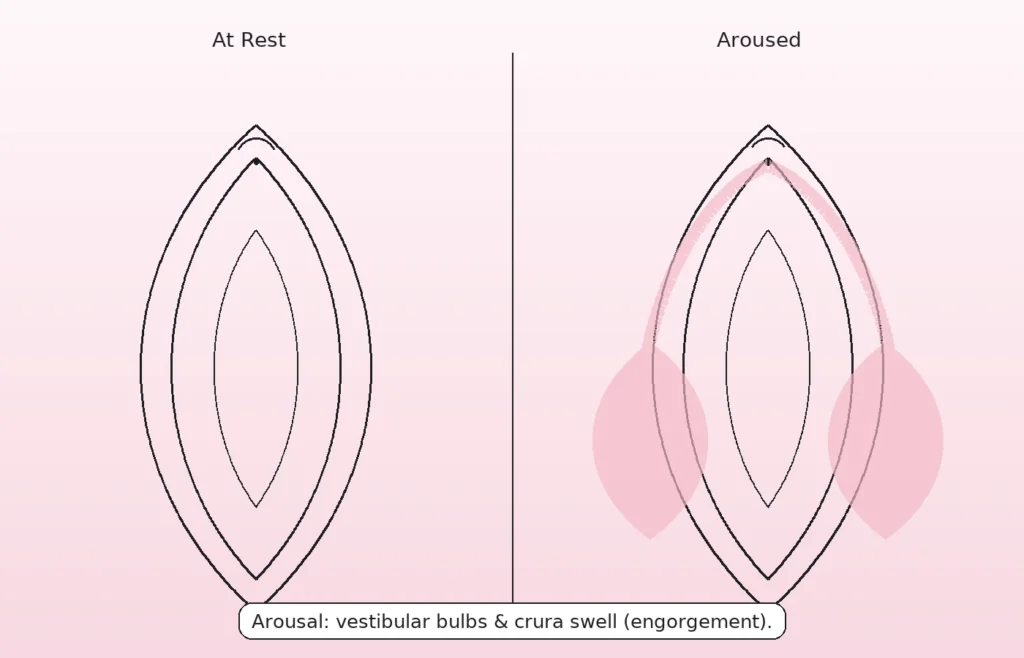
- Arousal: Blood flows in → the glans, crura, and bulbs swell → sensitivity increases.
- Orgasm: Rhythmic contractions and release after steady stimulation.
- Common preference: Many people enjoy indirect touch through the hood or steady pressure around the bulbs more than direct friction on the glans.
Normal Variations in Clitoral Anatomy
- Hood may cover more or less of the glans
- Glans size and shape vary a lot
- Slight left/right differences are common
- Position can be higher or lower—all normal
Myths → Facts
- “It’s just a dot.” → Most of it is internal and Y-shaped.
- “Penetration alone should be enough.” → Many need external clitoral stimulation. Normal.
- “Harder is better.” → Comfort varies; many prefer gentle/indirect touch.
- “Bigger means more sensitive.” → Size doesn’t predict sensitivity.
Comfort & Care for the Clitoris
- Clean: Warm water; avoid harsh soaps on the glans/hood.
- Lube: Use water-based, especially with silicone devices.
- Irritation: Switch to breathable fabrics; reduce friction.
- See a clinician if: Persistent pain, numbness, new lumps, or trouble retracting the hood that causes discomfort.
A simple self-explore routine
- Privacy, mirror, and a little lube.
- Identify the hood, then the glans beneath.
- Start with light, indirect strokes over the hood.
- Try gentle pressure at the sides of the vaginal opening (over the bulbs).
- Adjust pressure, rhythm, and angle—your comfort is the guide.
Quick FAQ
At the top of the vulva, under the clitoral hood. The visible part is the glans.
Because the clitoris mostly sits outside/around the entrance, not inside the canal. External stimulation is often needed.
No. Many prefer indirect touch via the hood or steady pressure around the bulbs.
Use more lube, lighten pressure, and slow down. If pain persists, check in with a clinician.


